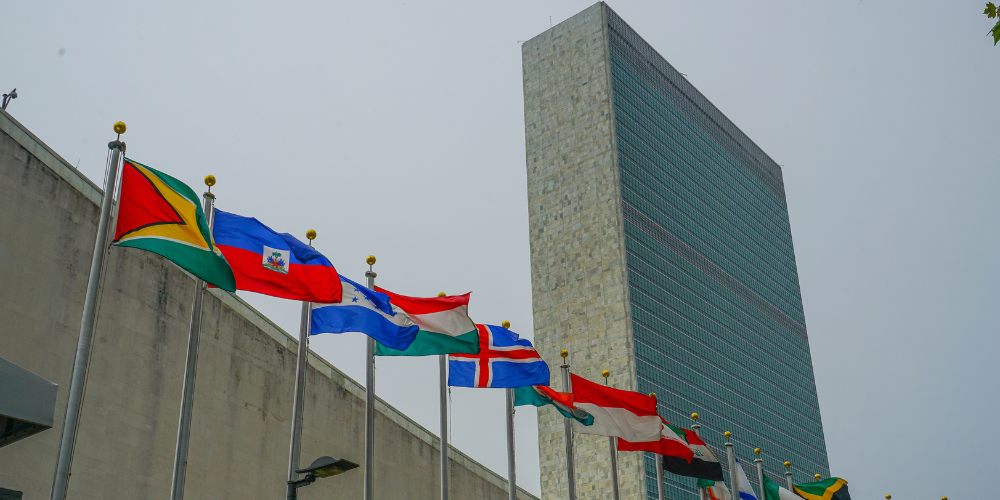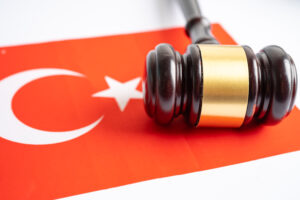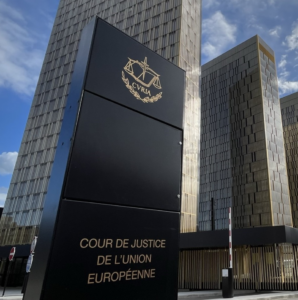- Free speech experts raise concerns about the rise of free speech violations across Europe and UK to the UN
- ADF International’s Kelsey Zorzi underscores global threats to free speech, citing EU Digital Services Act.

NEW YORK CITY (Sept 25) – In a significant show of concern, the U.S. State Department hosted a panel discussion at United Nations High-Level week on Thursday. Experts addressed rising global censorship, highlighting the UK and Europe. Kelsey Zorzi, Director of Advocacy for Global Religious Freedom with ADF International, highlighting growing threats to free speech across the world.
“With hundreds of active cases in dozens of countries across six continents, we have a unique vantage point from which a clear picture has emerged: censorship is becoming more aggressive, more coordinated, and more global,” said Zorzi.
“Censorship is becoming more aggressive, more coordinated, and more global."
- Kelsey Zorzi, Director of Advocacy for Global Religious Freedom at ADF International
The panel, on the margins of the UN High-Level Week before the 80th Session of the General Assembly, follows a hearing before the House Judiciary Committee of the US Congress, where ADF International similarly warned US lawmakers of the threat of censorship growing across Europe.
Escalating Censorship Across the World
Zorzi described the state of censorship in the EU as “highly concerning.” She highlighted the case of Päivi Räsänen, a sitting Finnish Parliamentarian facing criminal prosecution for tweeting a Bible verse, now before Finland’s Supreme Court. ADF International is coordinating Rasanen’s legal defence.
Another major concern raised was the reality that Europe is exporting censorship worldwide through the EU Digital Services Act (DSA), including to the United States.
Zorzi stated the following on the censorial impact of the DSA:
“The DSA is a brazen attempt to create a global Censorship Industrial Complex, not only for the EU but for the entire digital world. It is imposed on all platforms used by Europeans, regardless of where those companies are based. Any content found objectionable under EU rules may be banned everywhere.
“While EU regulators have denied that the DSA promotes censorship within Europe or abroad, just this week, in response to investigations carried out by the U.S. House Judiciary Committee, the internet giant Google expressed its own concerns that ‘the DSA may pose [risks] to freedom of expression within and outside of the European Union.’
“We’ve also already seen just how far governments will go in censoring online speech, and there is no reason to believe that EU regulators wielding the enormous bureaucratic power of the DSA would have any more restraint.
“The UK already arrests 12,000 people every year—over 32 people a day—for allegedly offensive online posts. The Brazilian Supreme Court has recently held that digital platforms like X should be held directly liable for posts allegedly constituting “hate speech” if they are not removed, a decision that has led, in part, to the U.S. placing sanctions on Brazilian officials. EU officials have previously even threatened X with massive fines merely for hosting a conversation with then-Presidential candidate Donald Trump.
“In a similar manner to the EU, the UK has embarked on the path of online censorship with the introduction of the so-called ‘Online Safety Act’ which is already being used to censor perfectly legitimate political speech as ‘illegal content’, like the EU’s Digital Services Act the UK’s Online Safety Act gives government regulators power to impose enormous fines on tech companies- which leads to a compliance mindset.”
Zorzi called on governments to take action, stating that, “While the current EU censorship landscape is highly concerning, the weeks ahead are critical, as the DSA comes under mandatory review this November. Many European leaders already have a vice grip on the global public square. Nations and organizations that support free speech anywhere must push back now before that vice grip becomes a chokehold.”





